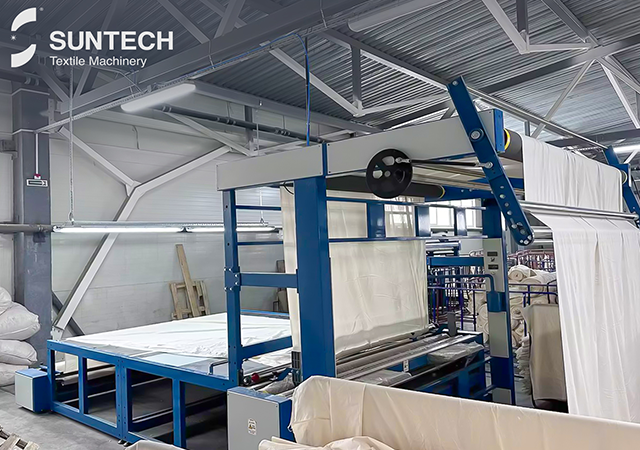The apparel industry is experiencing a significant transformation driven by two powerful trends: fast fashion and personalization. These models are redefining how businesses approach product design, manufacturing, and marketing, enabling them to meet the precise needs of diverse consumer segments. In China, the apparel market is distinctly divided into high-end and low-end sectors, each with unique demands that fast fashion and personalization address effectively.
Precision Positioning in the Apparel Industry
Precision positioning, which involves identifying and catering to specific customer groups, is crucial for success in the apparel industry. This strategy is particularly important for enterprises involved in apparel production and related machine manufacturing, such as cloth-cutting machines. By honing in on the precise preferences of their target market, these businesses can maximize customer satisfaction and loyalty.
China’s apparel market is characterized by a clear segmentation. The low-end market prioritizes fashionable, varied styles at moderate prices, while the high-end market focuses on brand prestige and exquisite craftsmanship. Fast fashion and personalization emerge as the optimal strategies for addressing these distinct needs.
Fast Fashion: Meeting the Demands of the Low-End Market
Fast fashion is a prevalent concept in the middle and low-end markets, where affordability and trendiness are paramount. Consumers in this segment look for a wide array of styles at reasonable prices, with physical stores offering a tangible shopping experience that online platforms cannot entirely replace. The convenience of trying on clothes in-store, combined with prices comparable to those online, makes physical stores a preferred choice for many.
The success of fast fashion is evident from its performance in recent years. Despite a general decline in traditional apparel enterprises, brands adopting the fast fashion model have thrived. For example, a fast fashion brand reported a 70.5% year-on-year increase in operating income and an 83.57% rise in net profit for the first three quarters of 2014. This growth trend underscores the model's effectiveness in capturing the low-end market.

Personalization: Catering to the High-End Market
In the high-end market, personalization is the key to meeting the sophisticated demands of consumers. High-end consumers are less price-sensitive and more focused on brand significance and emotional connection. Personalization allows brands to offer unique, tailored experiences that resonate deeply with this segment.
A prime example of successful personalization is the Red Collar Group, a pioneer in internet customization. By integrating 3D printing logic into large-scale production, Red Collar has achieved near-total personalization while maintaining industrial efficiency. This innovative approach has led to impressive results: the company produced 7 million sets of clothing and generated sales revenue of 1.676 billion RMB in 2013, with annual output value increasing to around 2 billion RMB by 2014.
Personalization not only meets consumer demands but also mitigates inventory risks. Unlike finished clothing markets burdened with high inventory and branding challenges, personalized products operate with minimal inventory pressure. Companies leveraging cloud computing for clothing customization are at the forefront of this trend, exploring new models for apparel cloud data and cloud personalization.
The Future of Apparel: Fast Fashion and Personalization
Both fast fashion and personalization represent emerging, transformative models in the apparel industry. These strategies allow brands to precisely position themselves in the market, catering to the specific needs of different consumer segments. As traditional manufacturers and e-commerce companies continue to evolve, the integration of fast fashion and personalization will likely drive further innovation and growth.
In conclusion, the convergence of fast fashion and personalization is reshaping the apparel industry by enhancing precision positioning, improving customer satisfaction, and driving financial success. As these trends continue to develop, they will play an increasingly vital role in defining the future of apparel, both in China and globally.
SUNTECH Textile Machinery offers a comprehensive range of products that cater to various fabric types. Our product lineup includes, but is not limited to fabric cutting machine, motorized beam trolley, and beam storage. With our innovative approach and extensive experience, SUNTECH Textile Machinery remains at the forefront of the textile industry. We warmly welcome requests for quotes and cooperation opportunities from you!




